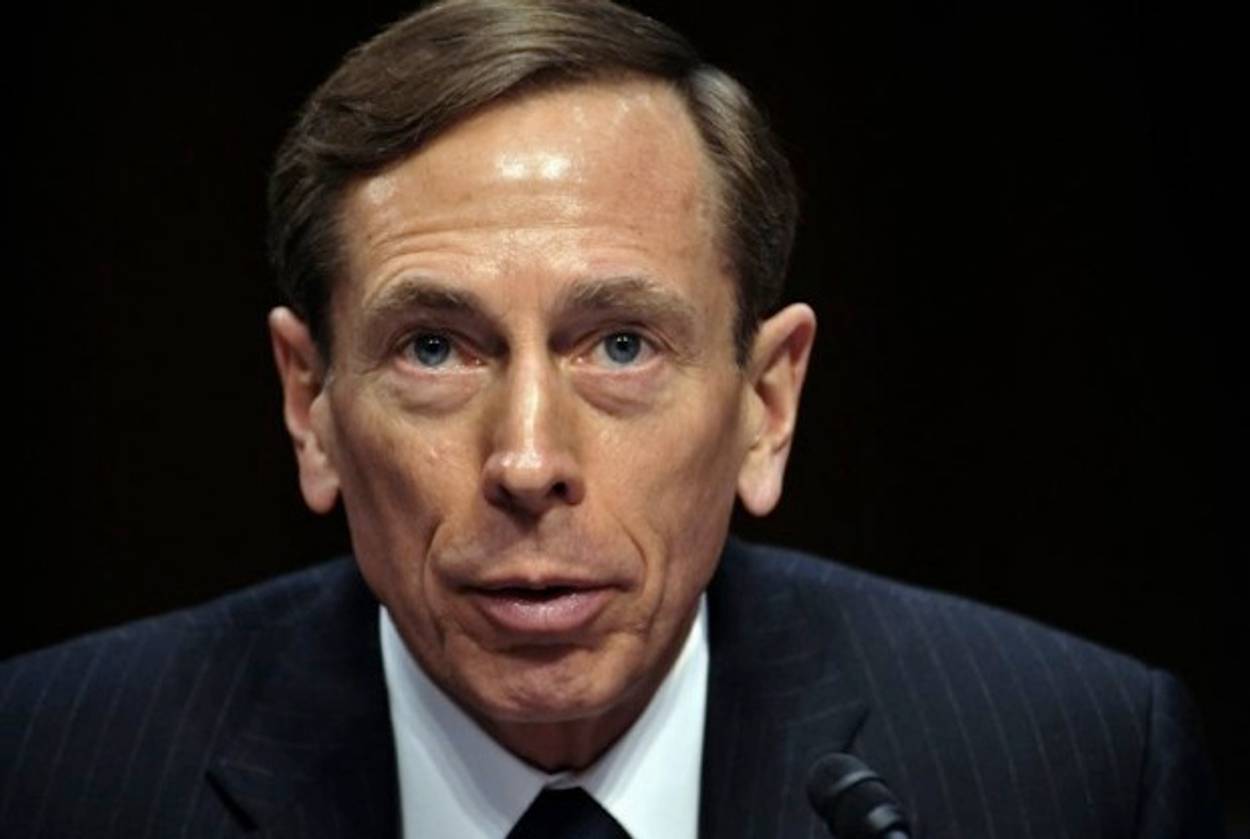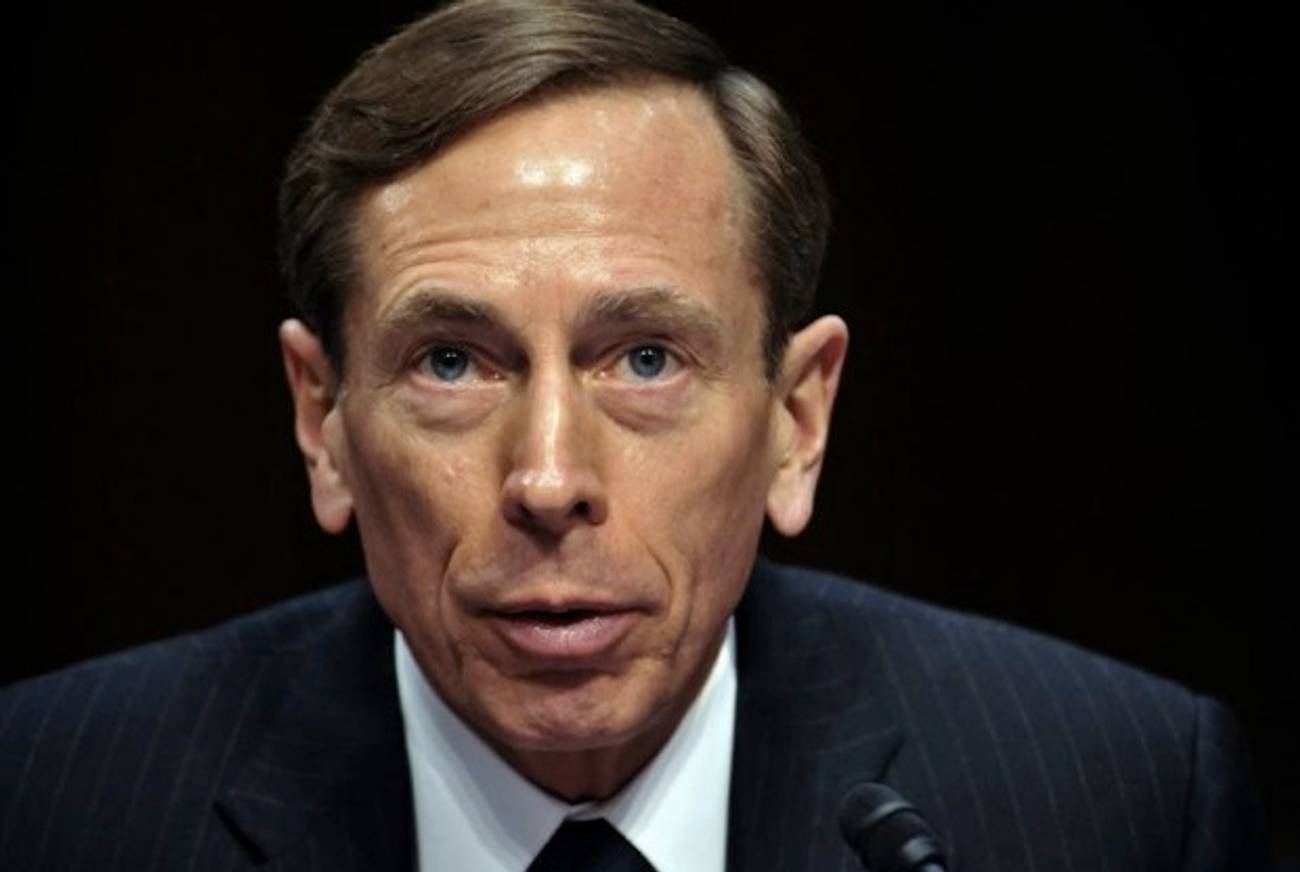What Did Eric Cantor Know About Petraeus?
If he knew the truth about the CIA chief’s affair, why did he sit on it?




As the seamy details of now-former CIA chief Gen. David Petraeus’ affair with his biographer, Paula Broadwell, multiplied over the weekend, so did questions from lawmakers who wanted to know why they weren’t alerted sooner that the FBI was investigating potential security breaches involving the nation’s top spymaster. That, in turn, has given license to a wave of conspiracy-mongering, especially among conservatives who find the post-election timing of the scandal irresistibly suspicious, along with the fact that Petraeus’ resignation means that he may no longer be testifying next week on what happened in Benghazi. But conservatives aren’t the only ones raising suspicions: the New Yorker’s Jane Mayer, no friend of Republicans, asked in a blog post yesterday: “What is really going on here?”
Mayer, like others, has focused on the revelation, first reported by the New York Times on Saturday, that House Majority Leader Eric Cantor’s office got a call in late October from the FBI agent who helped initiate the investigation in the first place on behalf of Petraeus’ friend Jill Kelley, a military booster who had been receiving anonymous, threatening emails from Broadwell. According to the Times, Cantor called Robert Mueller, the head of the FBI, on Halloween to alert him to the agent’s claims that national security might have been compromised—but did nothing further with the information.
Why did Cantor keep this seeming bombshell to himself, particularly in the final week before the presidential election? It’s possible that the FBI agent, whom Cantor’s office describes as a “whistleblower,” didn’t reveal enough details to be politically useful to Cantor. It’s also very possible that Cantor’s office didn’t take the whole thing that seriously, given everything else that was going on—not just the Benghazi investigation, but Hurricane Sandy and the election. (Hill staff routinely deal with kooky calls, some of which turn out to be nothing, and some of which, like this one, turn out in retrospect to have been for real.) It’s also possible that Cantor actually respected the potential national security and personal privacy implications and decided to hold the information quietly and responsibly, in which case, he should get a gold star and some newfound respect from all parties on the Hill.
But it’s equally plausible—and, given his reputation for political savvy, more believable—that Cantor was playing a long game. As Mayer suggests, “One obvious point of the call would have been to inform the FBI director that Republicans on the Hill knew about Petraeus’ vulnerability, and also about the investigation. If the FBI had ever entertained hopes of keeping it secret, the odds of doing so were fast diminishing.”
At that point, then, the people who are simultaneously suggesting that the White House kept the Petraeus affair quiet until after the election and then blackmailed him into leaving—we’re looking at you, Michael Ledeen—might start asking some corollary questions. If Cantor really knew and understood the full implications of what was going on, did he betray the public and potentially his own partisan cause by not alerting, say, his colleague Mike Rogers, the Republican chair of the House intelligence committee, sooner? What if Cantor did tell his close friend, Rep. Paul Ryan, then still the putative vice-president? Did Team Romney decide it was too seamy or too unpredictable to pursue the sex allegations against Petraeus days before the election, or did they also fail to recognize a potential political opportunity? All of these questions turn on the idea that the earlier revelation of the Petraeus scandal could have tipped the election in Romney’s favor. It may be a comforting thought for those who are still shocked that Obama won what had seemed to them to be an impossible re-election, and who don’t want to face up to one solid fact: that the reality of how elections are won or lost, like the sometimes boring truth of Washington scandals, can also be more mundane than anyone wants to imagine.
Petraeus Affair Just Gets Stranger [NYM]
Friend: Petraeus Began Affair After Taking CIA Job [AP]
U.S. Lawmakers Handle Questioning of Petraeus Affair [NYT]
Benghazi Conspiracy Theories Fly Following Petraeus Resignation [Examiner]
A Petraeus Puzzle: Were Politics Involved? [New Yorker]
U.S. Officials Say FBI Knew of Petraeus Affair in Summer [NYT]
The Petraeus Espionage File [PJ]
A Vast Left-Wing Conspiracy [Slate]